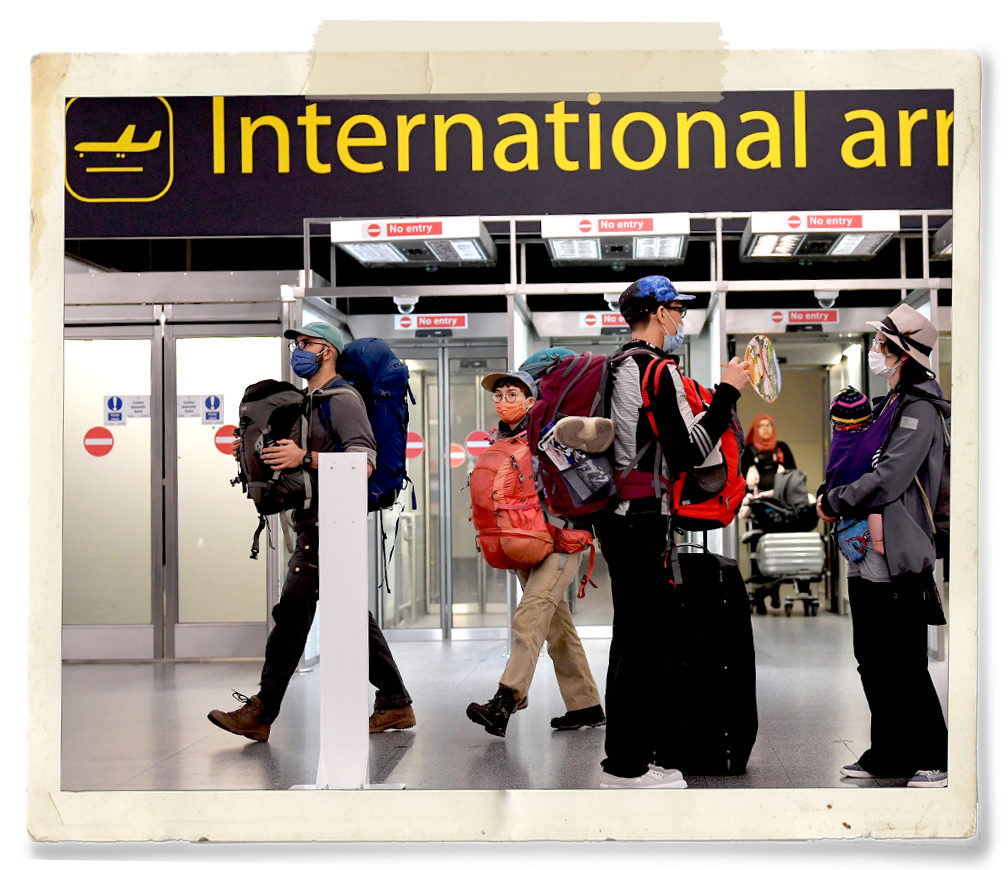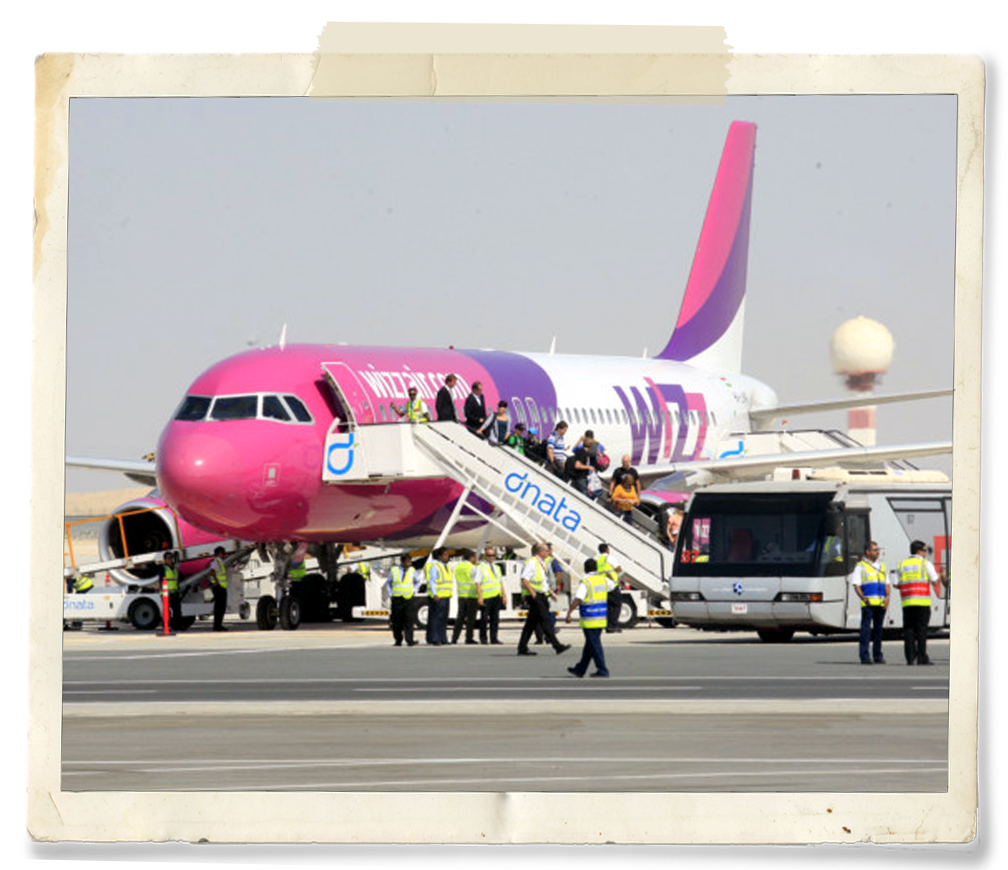AIR TRAVEL RESUMES AMID TURBULENCE
International flights resumed to repatriate the stranded, but that gave airlines the confidence to operate regular flights on some routes, albeit with plenty of restrictions. At least, that’s a beginning.

Reuters
Passengers arrive at Gatwick Airport in London on July 10, 2020.
The flight paralysis underscores the magnitude of the pandemic’s damage. The number of flights to the US, Australia and Japan fell by more than 80 per cent from a year ago, while flights to China are down by more than 94 per cent, according to aviation industry database Cirium. Travellers have to be creative to get on a plane, the report added.
Support groups sprung up on Facebook and WeChat for those stuck thousands of miles from their jobs, homes and families. Unable to get tickets, some people chartered flights, while travel agents say they had to bribe airlines for limited seats. Others are shelling out for business or first-class tickets, only to be turned away for lack of the right documentation.
While some countries have limited air bubble agreements, such as the ones made for Vande Bharat – India’s repatriation mission – with UAE and other Gulf countries, others have opened up flights but with restrictions on seats and routes. This means whopping prices for popular routes.
For example, Bloomberg reported that a direct flight ticket from London to Shanghai went for about $5,000 and that too for limited numbers.

Supplied
A Wizz Air aircraft.
New routes, new strategies
United Airlines Holdings Inc. will add new nonstop flights to Africa and India to serve customers visiting friends and relatives, as the carrier revamps an international network beset by weak business traffic.Destinations such as Lagos, Nigeria, and Bangalore, India, will focus on large diasporas living in the U.S. and give United greater network diversity, said Patrick Quayle, vice president of international network and alliances. Traffic from trips to see friends and family has withstood the coronavirus pandemic better than other segments, particularly corporate travel, he said.
“It’s us rebuilding our network in a new way,” Quayle said. “We’re not just going to put the chess pieces back on the board the way they used to be.”
Airlines were struggling with most flights grounded when a new kind of competition ensued in America: a race to drop change fees. Hours after United announced that it is “permanently” dropping change fees for economy and premium tickets within the United States, airlines including Delta, American and Alaska followed suit. In some cases, the offer was extended to some international routes. Southwest, which has long had a no-change-fee policy, was suddenly not the only player offering flexible booking.
For example, UAE airline Emirates extended its flexible booking policy to allow travellers to use any flight ticket cancelled due to COVID-19 to fly within two years from the original date of booking. The airline is also extending the life of its Skywards loyalty air miles during this time of suspended travel and suspending tier-review for various classes of members. Both Emirates and Etihad also announced COVID-19 insurance cover for passengers.
A year into the pandemic, the push to normalise international travel is bearing fruit. Many airlines are flying on regular routes. The arrival of vaccines will be a shot in the arm for air travel. But the discovery of a new strain of coronavirus has come as turbulence as flight restrictions have imposed in several countries around the world.